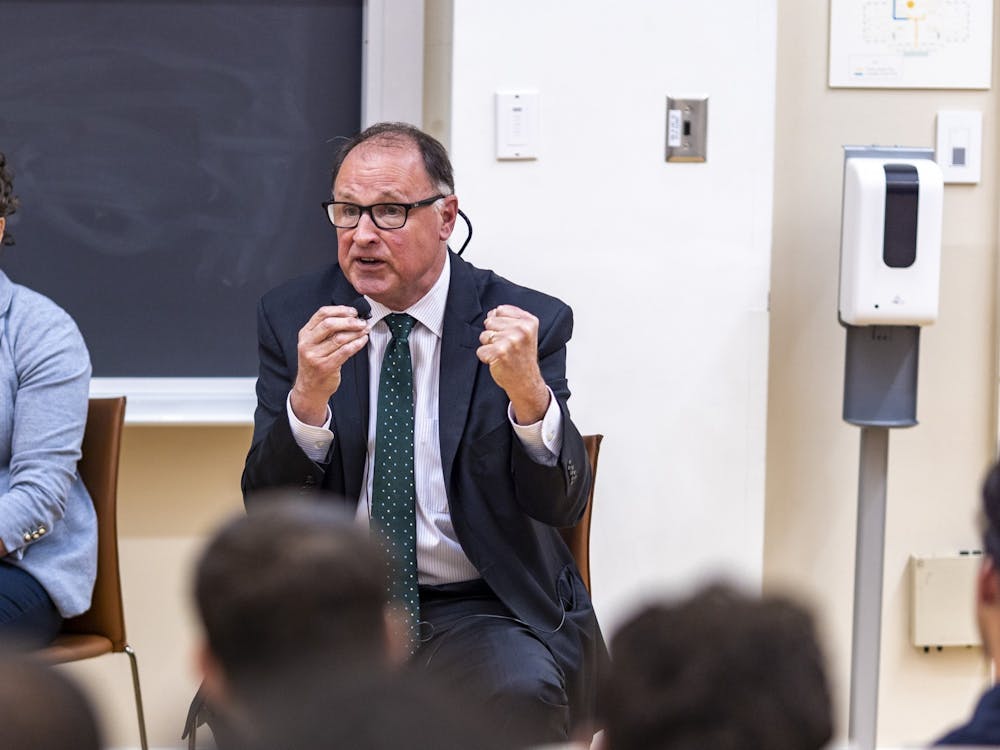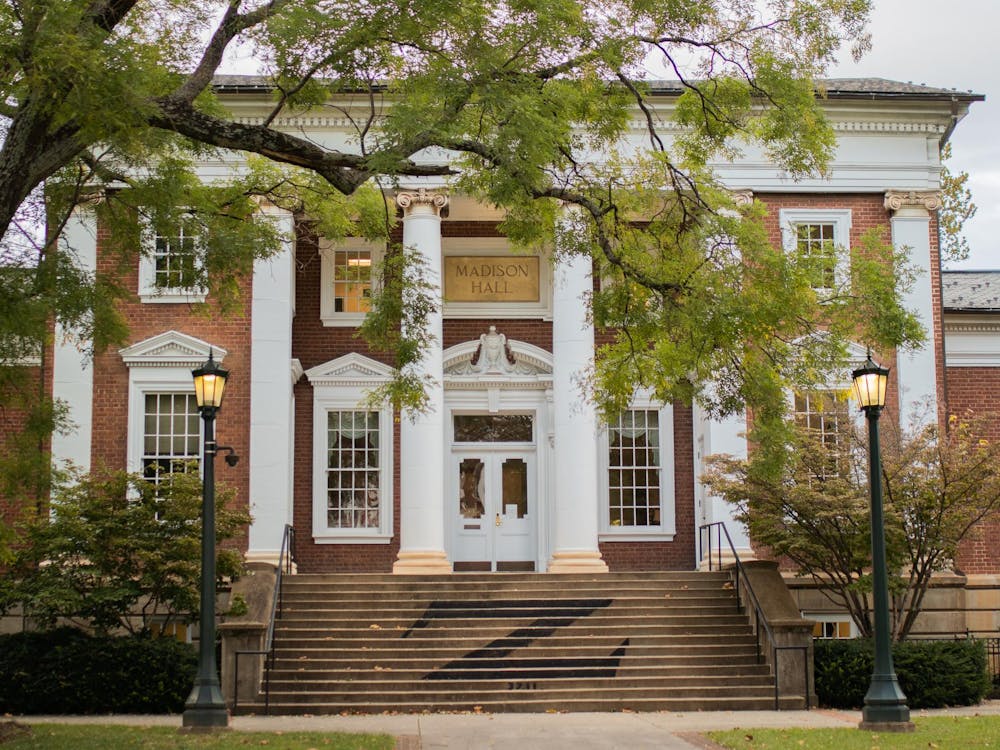During the frequent conversations between candidates and voters throughout this General Assembly campaign season, hot-button topics have ranged from health care reform to guns in schools to safer roads, but seldom higher education.
Today, elections will be held for every seat in Virginia's bicameral state legislature, races which gain added importance because the partisan distribution of the House is nearly even. Both parties are striving to gain a majority (see related story).
Higher education is not much of an issue in this year's elections, said Larry J. Sabato, government and foreign affairs professor.
One reason for the silence of many Republican candidates on the higher education issue is that they are deferring to the Blue Ribbon Commission on Higher Education, an advisory board established by Gov. James S. Gilmore III (R).
"A lot of Republicans are ... waiting to see what the Commission has to say," College Republicans Chairman John Blair said.
In contrast, Democratic candidates and voters are concerned that Gilmore wants to intervene too much in the administration of public universities.
"We need to preserve the autonomy of the Boards of Visitors ... Gilmore is perceived as wanting to have more direct control," said Craig Bieber, Democratic Party of Virginia executive director.
When the issue of higher education does come up, most candidates of both parties stress the need to decrease tuition costs at Virginia's colleges.
Republican candidates emphasize the decreases in tuition costs that Republican governors -- Gilmore and his predecessor George Allen -- have been able to achieve, after costs rose under previous Democratic governors.
Republican candidates, therefore, are focusing on affordability and accessibility of college education, said Ed Matricardi, Virginia Republican Party executive director.
Some candidates from the Democratic Party advocate using part of Virginia's surplus in revenues to defray the cost of tuition, Bieber said.
Even though candidates are addressing higher education issues, these topics are mostly taking a back seat to transportation, gun control, tax relief and health care reform.
In light of the recent increase in school violence nationwide, candidates of both parties have focused heavily on the issue of gun control, particularly in schools.
However, voter opinion on that issue varies widely depending on the region of Virginia, because more rural areas of the state have more strong gun-rights advocates among both voters and candidates.
"Gun control is being mentioned a lot more in Northern Virginia -- in Southern Virginia it can certainly turn off a lot of voters," Blair said.
Part of the Democratic strategy on the gun control issue is to take Republicans to task for their support of a bill that allows students to possess a firearm on school grounds, said Kelly Young, executive director of Democrats 2000, an organization that coordinates grassroots campaign efforts for Democratic candidates in Virginia and other states. The bill only applies to guns kept in a locked trunk of a car or unloaded on a firearm rack.
But Blair said he did not believe the bill would have a substantial effect on this election.
"I don't think the average voter is going to make a decision based on a hunting rifle in someone's trunk -- which must be locked," he said.
Democratic candidates are advocating measures to improve school safety such as reducing class size and increasing the availability of alternative education programs for disruptive students.
Tax issues are high on the agenda for many General Assembly candidates as well.
Republican candidates are emphasizing the GOP's recent track record on tax relief, including Gilmore's repeal of the tax on motor vehicles, while Democrats are calling for the repeal of the state's sales tax on food and a freeze on the real estate tax for senior citizens.
Transportation is another hot-button issue, especially among suburban regions contending with heavy traffic such as Northern Virginia and Hampton Roads.
Both parties' candidates promise increased funding to make Virginia's road system safer and better.
The Buck
One factor that has made this year's races unique is the influx of campaign funds to Republican campaigns from the Virginia Victory Fund, a political action committee headed by U.S. Rep. Tom Davis, R-11th.
Davis, an experienced fundraiser as a result of his position as chairman of the National Republican Congressional Committee, has pumped hundreds of thousands of dollars through the Virginia Victory Fund into Republican campaigns statewide, leaving Democrats frustrated.
"The big money that's being dumped into Virginia is appalling, forcing candidates to run $100,000 campaigns, which you never see at the local level," Young said.
The amount of Republican money funneled to candidates this year may encourage General Assembly members to consider campaign finance reform measures during the legislative session, Bieber said.
He said one reason why considerable funds have been raised and spent is that the partisan balance of the House is at stake and "every seat counts."
Although the Virginia Victory Fund's contributions will make an impact on the races, this is no reason for criticism, Blair said.
"Everyone has a right to contribute to the candidates of their choice and express freedom of speech," he said.






